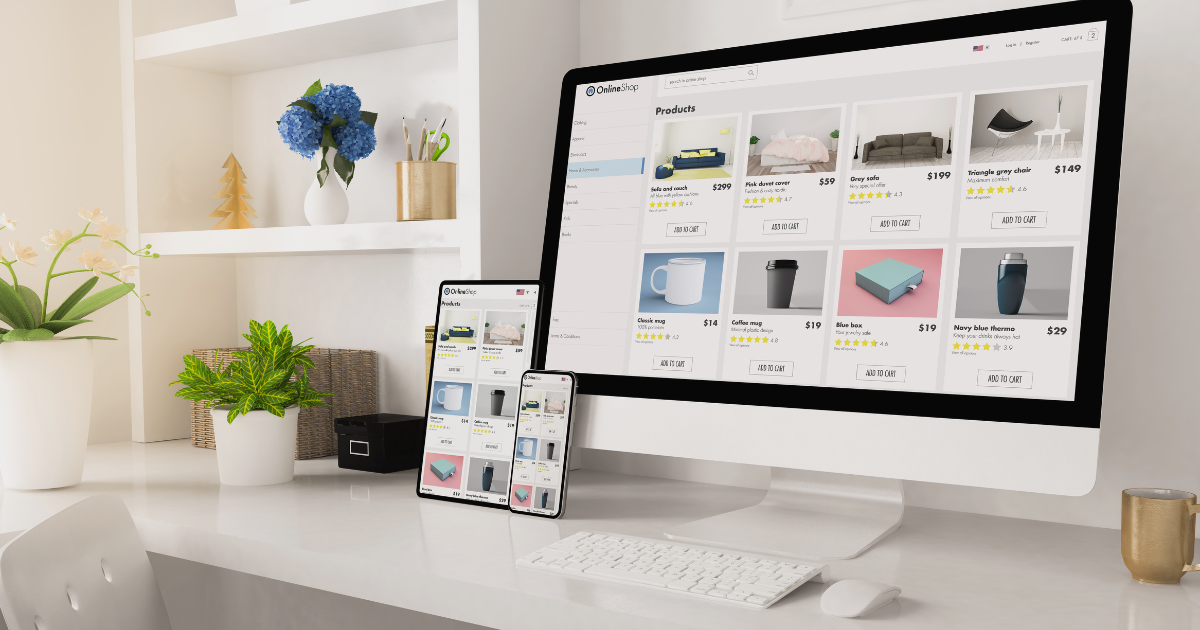For companies looking to amplify their brand’s reach and streamline their distribution of branded merchandise, the online company store has become an invaluable resource. More than a typical e-commerce platform, an online company store is designed specifically to reflect the essence of a company’s brand while providing a centralized hub for ordering branded items. Whether serving employees, partners, or clients, online company stores create a structured way to control brand representation, simplify the ordering process, and improve engagement across a business’s network.
An online company store does much more than sell products—it enhances brand consistency, reduces administrative costs, and strengthens relationships both within the organization and externally. As businesses continue to seek ways to connect with their audiences and maintain cohesive branding, the online company store provides a streamlined and professional solution. For companies aiming to maintain a polished image and build lasting connections, implementing an online company store is a strategic step towards efficient, effective brand merchandising.
What is an Online Company Store?

An online company store is a digital platform exclusively designed for distributing a company's branded products to a targeted audience, including employees, customers, and partners. Unlike traditional e-commerce stores open to the general public, online company stores are typically restricted to a specific group and often require access credentials or links. These stores can host an array of products, including branded clothing, office supplies, tech accessories, and custom promotional items, all bearing the company’s branding to ensure consistency.
The design and functionality of an online company store are tailored to meet the company’s needs and reinforce its brand identity. Each item in the store is carefully curated to reflect the quality, style, and values of the organization. By providing this unique platform, companies ensure that their branded products remain consistent with their image and values, simplifying how employees, partners, and clients can access official merchandise. This level of control and cohesion makes online company stores a powerful tool in today’s competitive, brand-focused landscape.
The Value of Online Company Stores for Businesses
Establishing an online company store adds measurable value to businesses by streamlining their merchandising efforts and reinforcing brand cohesion across audiences. This type of store offers a unique, controlled space for distributing branded merchandise that can have a lasting impact on both internal and external relationships.
- Enhanced Brand Identity: An online company store provides a seamless way for businesses to reinforce their brand identity. Each item in the store reflects the company's values and visual aesthetics, creating a cohesive experience. As employees, clients, and partners use these items, the brand becomes more deeply ingrained in their everyday interactions, solidifying brand loyalty and recognition.
- Operational Efficiency: The centralized nature of an online company store reduces the time and resources spent managing merchandise requests. By consolidating ordering, inventory management, and distribution into one streamlined system, businesses simplify their operations, reducing the logistical load on individual departments.
- Increased Employee Engagement: An online company store serves as an accessible hub for employees to find company-branded gear and merchandise. Branded items can instill pride and reinforce employees’ connection to the organization. By offering a consistent, curated selection of items, the store creates opportunities to enhance morale and promote unity within teams.
- Stronger Client and Partner Relationships: Branded merchandise offers a tangible way to connect with clients and partners, extending goodwill and appreciation through thoughtfully curated gifts. An online company store provides businesses with a convenient method to select, personalize, and distribute these items, reinforcing bonds in a way that is both professional and personalized.
- Cost Management and Savings: Online company stores consolidate orders and create efficiency through bulk purchasing, reducing the per-unit cost of branded items. By standardizing the order process, businesses also cut down on administrative expenses and streamline their distribution, ultimately maximizing their budget and providing cost-effective solutions.
Through an online company store, businesses can efficiently meet various merchandising needs, enhance brand alignment, and foster connections with their key audiences. The store acts as a strategic asset, contributing to both the company’s image and its operational efficiency.
“An online company store is more than just a merchandise platform—it’s a strategic asset that enhances branding, builds loyalty, and supports operational efficiency.”
Types of Online Company Stores
Different types of online company stores can serve various organizational needs, from internal distribution to public engagement. Each type aligns with a unique purpose and audience, helping companies focus their merchandising efforts effectively.
1. Employee Stores
Employee stores are dedicated platforms where team members can access and order branded merchandise like uniforms, tech accessories, and office supplies. The purpose of these stores goes beyond practicality; they foster a sense of pride and cohesion among employees by enabling them to represent their organization visually and uniformly. Employee stores are commonly set up with controlled access, so only staff members can browse and purchase, ensuring that the store’s offerings align with internal branding standards. Often, these stores are also configured to handle bulk orders or provide seasonal items for specific company events or team-building activities.
2. Client and Partner Stores
Client and partner stores are exclusive, often invite-only, online spaces that offer curated, branded merchandise tailored for key stakeholders. These stores may feature high-end or unique items that align with the values of the business relationship, serving as a personalized touchpoint to enhance loyalty and appreciation. For example, a law firm might offer branded leather portfolios, premium desk accessories, or luxury drinkware to its clients through such a store, reinforcing its commitment to professionalism and quality. Client and partner stores allow organizations to show appreciation for their business relationships, setting the foundation for long-lasting connections.
3. Event and Trade Show Stores

Event-based stores are temporary online platforms that support a company’s branding efforts during specific occasions, such as trade shows, conferences, product launches, or company anniversaries. These stores can be tailored to feature event-specific merchandise, such as commemorative apparel, branded giveaways, or exclusive products tied to the event's theme. Event stores simplify logistics by offering attendees the convenience of selecting and purchasing items online, sometimes even before the event begins. This setup allows companies to enhance the event experience while managing inventory efficiently, ensuring that each participant leaves with a branded item that reinforces the event's impact.
4. Public-Facing Brand Stores
Public-facing brand stores cater to fans, followers, and brand enthusiasts who may not be directly affiliated with the company. These stores expand brand reach, providing a retail-like experience where external audiences can purchase branded merchandise. Public-facing stores open up a new revenue stream and enhance brand visibility across a broader audience. Products can range from apparel and accessories to novelty items that resonate with the company’s image, allowing brand advocates to represent the brand in their daily lives. Additionally, these stores give companies control over how their brand appears to the public, ensuring consistency in brand presentation while tapping into consumer interest.
5. Hybrid Stores
Hybrid stores are versatile platforms that cater to multiple audiences—employees, clients, partners, and the public—all within one store. Access can be tiered based on user roles, allowing for varied product selection based on the relationship with the company. For instance, employees may have access to uniforms and tech accessories, clients may view a selection of premium gifts, and the public can see branded lifestyle items. This flexible approach ensures that brand representation remains cohesive while addressing the distinct needs of each group. Hybrid stores are especially useful for larger organizations with multiple external and internal stakeholders, allowing for streamlined merchandising while maintaining brand integrity across all user groups.
Selecting the right type of online company store is essential to achieving specific branding and merchandising goals. Each type can be customized to meet unique business needs, whether for employee engagement, client appreciation, or public brand exposure.
Key Benefits of Implementing an Online Company Store
An online company store brings numerous advantages that can improve how a business operates and presents itself. By centralizing and controlling the distribution of branded items, businesses can reap the following benefits.
Enhanced Brand Consistency

An online company store serves as the single, centralized source for branded merchandise, ensuring that all products align with the company’s visual identity, quality standards, and overall brand message. This consistency is vital for organizations that prioritize a polished, professional image, as it eliminates the risk of employees or external stakeholders encountering outdated logos, mismatched colors, or off-brand designs. By consolidating brand assets in one location, companies maintain a cohesive appearance across all touchpoints, from employee uniforms to client gifts, strengthening brand identity and recognition.
Streamlined Ordering and Distribution
Online company stores simplify the logistics of ordering branded items by centralizing the procurement process. Instead of coordinating with multiple suppliers or handling individual requests from different departments, a single online platform allows employees and approved users to select and order items directly, reducing administrative workloads. This streamlined process not only improves the efficiency of ordering branded materials but also reduces lead times and shipping costs. It ensures a seamless, user-friendly experience, as employees and clients can access necessary items without delays or complications, whether they’re in the same office or across the globe.
Improved Cost Management

Cost control is another significant advantage of an online company store. By centralizing purchases, companies can negotiate volume-based pricing with suppliers, achieving cost savings on bulk orders. Additionally, having a dedicated platform allows for more accurate demand forecasting and inventory management, helping companies avoid the common pitfalls of over-ordering or running out of stock. This centralized approach to spending makes it easier to manage budgets across departments, ensuring that resources are allocated efficiently and aligning merchandise orders with real demand rather than estimations.
Boosted Employee Morale
An online company store contributes to employee engagement by offering access to high-quality branded merchandise. When employees can order well-made, branded items like apparel, office supplies, or tech accessories, it reinforces a sense of belonging and pride in the company. Branded items become more than just tools or uniforms; they represent a unified company culture and identity. This sense of connection fosters a stronger, more positive workplace atmosphere, which can boost morale and productivity. Additionally, providing branded items as rewards or incentives can be a valuable tool for employee recognition and motivation.
Elevated Client and Partner Relations
A thoughtfully curated online company store can strengthen relationships with clients and partners by offering exclusive, branded items that convey appreciation and reinforce loyalty. High-quality branded gifts or merchandise allow companies to show gratitude in a memorable way, creating a lasting impression that strengthens the business relationship. By providing clients and partners with access to select merchandise, companies can personalize the gifting experience, showing that they value these stakeholders as part of their brand community. This helps maintain goodwill and reinforces the company’s commitment to nurturing professional relationships.
Data-Driven Insights for Future Planning
Online company stores offer a valuable source of data and insights that can inform future marketing and merchandising strategies. Metrics such as order frequency, item popularity, and user demographics provide companies with actionable information about which products resonate most with different user groups. This data helps companies refine their inventory, ensuring that future offerings align with user preferences and optimizing product selection to maximize engagement. Additionally, data from the store can inform broader brand strategies, supporting initiatives like seasonal campaigns, employee recognition programs, or client appreciation events.
Additional Benefits of an Online Company Store
- Increased Brand Reach: For stores accessible to external audiences, companies can broaden brand exposure by turning clients, partners, and fans into brand ambassadors.
- Enhanced Compliance and Security: An online company store provides controlled access and usage rights, helping companies maintain brand compliance and security over who can order and use branded materials.
- Environmental Responsibility: With the ability to monitor inventory in real-time, companies can avoid overproduction and waste, supporting environmentally responsible merchandising practices.
With these benefits, an online company store becomes an essential asset for businesses aiming to improve brand consistency, operational efficiency, and audience engagement. Whether serving employees, clients, or the general public, the online store model allows companies to present a unified brand, improve budget control, and create meaningful connections with their audiences, making it a highly valuable tool in modern business strategy.
How Online Company Stores Simplify Branded Merchandising

Online company stores streamline branded merchandising by providing a structured platform that handles ordering, inventory, and distribution all in one place. This centralization simplifies processes and enhances control over brand presentation.
- Centralized Inventory Management: An online company store allows businesses to manage stock levels efficiently, ensuring that branded items are available when needed. This level of control minimizes the risk of overstocking and prevents stockouts, keeping the store’s inventory balanced.
- Automated Reordering and Tracking: Many online company stores integrate with inventory management systems that automate reorder alerts and track item popularity, enabling businesses to maintain optimal stock levels with minimal manual intervention.
- Efficient Fulfillment and Distribution: With pre-defined distribution channels, online company stores make it easy to ship items directly to employees, clients, or partners. This system reduces shipping times and ensures timely deliveries.
- Consistent Quality Control: Each product in the store is carefully selected and aligned with brand guidelines. This attention to quality ensures that the merchandise reflects the company's values and standards, reinforcing a positive image.
- Personalized User Access: Online company stores often include customizable access controls, allowing businesses to designate specific products for different groups. This feature helps keep certain items exclusive to certain audiences, reinforcing relevance and enhancing engagement.
By simplifying these aspects of merchandising, online company stores make it easier for businesses to distribute branded products consistently, efficiently, and with minimal logistical complications.
“Online company stores centralize branded items, ensuring consistency across all touchpoints and simplifying how employees, clients, and partners access official merchandise.”
Implementing an Online Company Store: Best Practices
For an online company store to be effective, businesses should follow a set of best practices that guide the design, implementation, and ongoing management of the store.
Step 1: Define Clear Objectives
The success of an online company store begins with clearly defined objectives. Before launching, establish the store’s primary purpose: is it exclusively for employees, focused on client and partner relations, or open to the public? Clarifying the target audience helps shape every aspect of the store, from product selection and branding to marketing and access controls. For instance, a store aimed at employees might feature uniforms and office essentials, while a client-focused store could include premium gift items. Setting clear objectives guides the store’s development and ensures it aligns with the company’s broader strategic goals.
Step 2: Choose the Right Platform

Selecting the right platform is critical to the store’s functionality and user experience. Look for a robust, user-friendly platform that can support high traffic, multiple user roles, and customization options. The platform should reflect the company’s branding, be easy to navigate, and deliver a seamless experience across devices. Consider features like single sign-on (SSO) for employee-exclusive stores, tiered access for hybrid stores, or integration with CRM systems for client-focused platforms. Choosing a platform with scalability options is also essential, allowing the store to grow alongside the company’s needs.
Step 3: Streamline Product Selection
A well-curated product lineup is essential to maintain user interest and drive engagement. Avoid overloading the store with too many items, as this can lead to decision fatigue. Instead, focus on offering a selection of high-quality, relevant products that genuinely represent the brand and meet the needs of the target audience. For example, a public-facing store might prioritize popular, easy-to-ship items, while an employee store could feature practical, everyday essentials. Streamlined product selection keeps the store user-friendly, reinforces the brand’s identity, and ensures inventory management is more efficient.
Step 4: Implement Inventory Management Tools
Effective inventory management is crucial for preventing stockouts and overstocking. Use automated inventory management tools to monitor stock levels in real-time, trigger alerts for low stock, and manage reordering seamlessly. These tools help reduce administrative tasks, ensuring that high-demand items are consistently available and that resources are not wasted on excessive stock. This is particularly important for event-based or hybrid stores, where stock needs can fluctuate. Automated inventory tools also provide data insights into purchasing patterns, helping refine future inventory planning.
Step 5: Prioritize Security and Compliance
Security and compliance are paramount in an online company store, especially when handling user data and payment information. Choose a platform that meets data protection regulations, such as GDPR or CCPA, and offers built-in security features like data encryption, secure payment processing, and user authentication. For stores accessible to the public or external stakeholders, ensure that transaction processes are safe and reliable. Compliance with these standards not only protects the company from legal risks but also fosters user trust, which is critical for ongoing engagement with the store.
Step 6: Continuously Gather Feedback
User feedback is invaluable for maintaining a user-friendly, relevant, and effective online store. Regularly collect input from users through surveys, feedback forms, or analytics to understand their experience. Use this feedback to adjust the product lineup, optimize the user interface, and enhance customer service. Gathering insights on popular items, checkout processes, and user navigation helps refine the store’s offerings and improve satisfaction. Continuously iterating based on feedback ensures the store remains aligned with user expectations and consistently provides value to its audience.
Additional Tips for a Successful Online Company Store
- Integrate Branding Elements: Infuse the store with brand colors, logos, and messaging to reinforce brand identity and create a cohesive experience.
- Provide Personalization Options: Allow users to personalize items, where applicable, for a unique experience, especially in client-focused or employee recognition stores.
- Optimize for Mobile: Ensure that the store is mobile-friendly, as users may access it on various devices.
- Implement a Reward or Loyalty Program: For employee or client stores, consider a reward program to encourage repeated engagement and reward loyalty.
- Leverage Data for Future Planning: Use analytics to inform merchandising decisions and anticipate future demands, allowing the store to adapt to evolving user needs.
Following these best practices helps create an online company store that is efficient, user-friendly, and aligned with organizational goals. A well-designed store serves as a strategic asset, enhancing brand consistency, improving operational efficiencies, and fostering deeper connections with employees, clients, and partners. By continuously refining the store based on user feedback and data insights, companies can ensure that it remains a valuable and impactful resource for all stakeholders.
Measuring Success: Key Metrics for Online Company Stores
To understand the effectiveness of an online company store, it’s essential to track specific metrics that provide insights into user engagement, inventory efficiency, and operational performance:
- Order Frequency and Volume: Tracking order frequency and volume helps assess demand and allows for adjustments to inventory and marketing strategies as needed.
- Inventory Turnover: Measuring how often products are sold and restocked provides insight into product popularity, ensuring that the most desired items are always available.
- User Engagement Metrics: Analyzing metrics such as page views, time spent on the store, and repeat visits offers valuable insights into user interest and satisfaction with the store’s offerings.
- Average Order Value: Higher order values may indicate successful upselling tactics or high interest in premium products, suggesting that the store resonates with users.
- Customer Feedback: Regular feedback collection through surveys or reviews allows businesses to pinpoint areas for improvement, helping to refine product selections and the user experience.
By monitoring these metrics, businesses can continuously refine and optimize their online company stores, ensuring they meet user expectations and enhance brand loyalty.
The Strategic Value of Online Company Stores
Online company stores are powerful assets for any business aiming to create a consistent brand experience and streamline access to branded merchandise. By centralizing the distribution of branded products, companies enhance operational efficiency and improve brand loyalty among employees, clients, and partners. As businesses increasingly focus on cohesive brand representation, an online company store becomes a strategic tool, supporting both internal engagement and external brand relationships.
Capital Gifts offers customized solutions to help businesses implement an effective online company store that reflects their brand’s quality and values.
Key Takeaways
- Online company stores are private, branded platforms that streamline the distribution of merchandise to employees, clients, and partners, ensuring consistency and brand alignment.
- Implementing an online company store allows businesses to control the quality and design of branded items, enhancing brand recognition and loyalty among users.
- Key benefits include centralized inventory management, cost savings, and the ability to foster stronger connections with both employees and clients through thoughtful merchandise.
- Different types of company stores cater to specific audiences, whether for employees, clients, public fans, or hybrid access, making them versatile for various business needs.
- Success metrics, such as order frequency, user engagement, and customer feedback, help businesses optimize their online company store for efficiency and user satisfaction.
Common Questions
What is a company store in an online context?
An online company store is a digital platform that companies use to offer branded merchandise, such as apparel, accessories, or office supplies, to employees, clients, or partners. These stores are private and customized, ensuring that the merchandise aligns with the company’s brand standards and values.
How do online company stores support brand consistency?
Online company stores centralize all branded items in one location, allowing companies to maintain control over quality, design, and branding. This ensures that every item aligns with brand guidelines, helping reinforce a consistent brand image both internally and externally.
What types of businesses benefit from online company stores?
Companies of all sizes, from Fortune 500 firms to smaller businesses, benefit from online company stores. They’re especially useful for organizations looking to streamline branded merchandise for employees, clients, and partners, and they enhance both internal engagement and external branding.
What are the key benefits of implementing an online company store?
Key benefits of an online company store include improved brand consistency, simplified inventory management, and reduced administrative tasks. They also help businesses foster employee engagement and build stronger relationships with clients through high-quality, branded merchandise.
How can businesses measure the success of their online company store?
Success metrics for an online company store include order frequency, user engagement, average order value, and customer satisfaction. Monitoring these metrics provides insight into the store’s effectiveness, guiding future product and marketing decisions.





